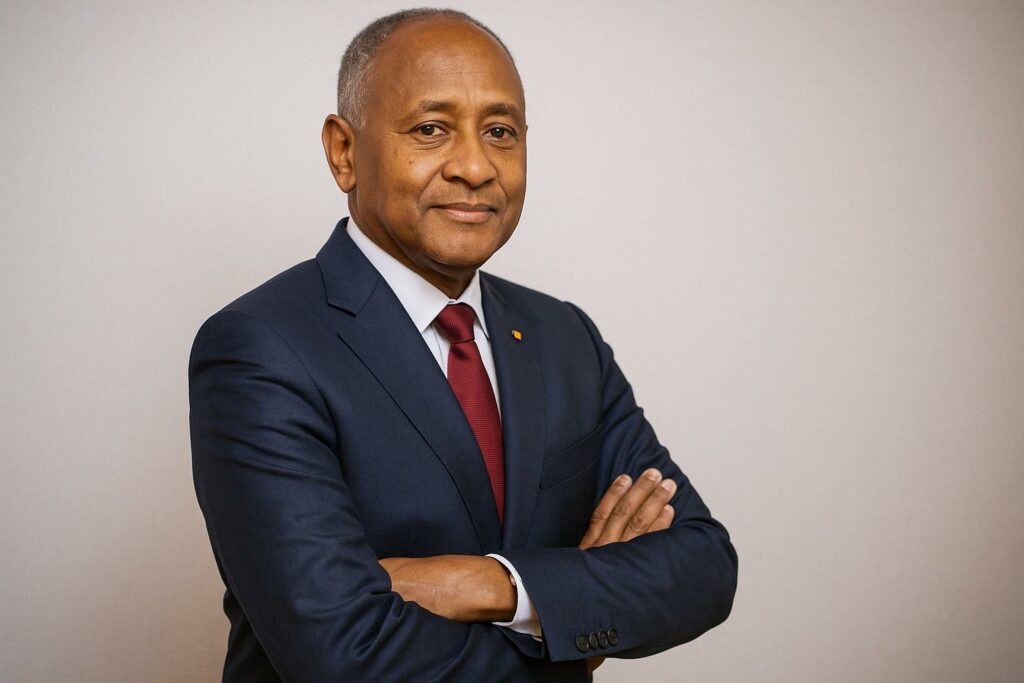UNESCO leadership showdown grips two hemispheres
Few elections at a UN agency have so vividly dramatised the global rebalancing of influence as the campaign for UNESCO’s next Director-General. On one side stands Firmin Edouard Matoko, a Congolese national who has spent thirty-five years within the organisation; on the other, Egypt’s Khaled El-Enany, archaeologist and former minister of antiquities. What might appear as a simple bureaucratic succession has become, in the words of Le Continent Magazine, “an opposition of substance between reformist universalism and organised regional diplomacy”.
Chronology of a contested nomination
Contrary to insinuations that Brazzaville hesitated, the Congolese dossier reached UNESCO on 13 March 2025, two days before the official deadline, exactly the same day as the Mexican aspirant who has since withdrawn. Economist Magloire Ndoba recalls that all three shortlisted candidates were interviewed and approved on 9 April 2025. He dismisses suggestions of tardiness as “media manipulation orchestrated from Cairo”, noting that the Egyptian team launched campaigning well in advance of the formal window (Ndoba).
Matoko’s decision was, in fact, encouraged by several African states after a Gabonese hopeful stepped aside. Ndoba alleges that the withdrawal followed “unfulfilled promises” extended by Egypt to Libreville—an episode that, if accurate, underscores the high-wire tactics surrounding multilateral elections.
Congo’s stakes: prestige and soft power
For Brazzaville, backing its most senior international civil servant is more than a patriotic reflex; it is an opportunity to burnish a national image sometimes overshadowed by political headwinds. Communication Minister Thierry Lézin Moungalla voiced the sentiment bluntly: “Whenever we needed certain partners, support was not forthcoming; future Congolese leaders will remember”. The remark, delivered on TV5 Monde, reveals a broader frustration that Francophone solidarity has not always translated into votes within UN corridors.
Pan-African calculus meets Arab unity
The African electoral group recognises that Matoko’s tenure at UNESCO gives the continent a candidate already conversant with the institution’s codes and budgets—USD 1.5 billion managing five priorities of education, culture, science, communication and inclusion. Yet, El-Enany enjoys the cohesive backing of the Arab League, advanced on the principle that “it is our turn”, an argument as old as rotational diplomacy itself.
Le Continent Magazine observes that the duel exposes “the fragility of South-South solidarity”. While both contenders originate from the Global South, their coalitions are distinct: sub-Saharan states weigh integrative symbolism, whereas Arab capitals invoke geographic alternation.
Rotation or merit: the normative debate
Should global agencies be allocated by regional sequence or awarded on programme and performance? UNESCO’s statutes are silent on entitlement. Ndoba contests the rotation thesis, stressing El-Enany’s limited diplomatic portfolio: “He served as minister of antiquities and tourism; he has never steered Egypt’s foreign policy”. Supporters of the Egyptian scholar counter that cultural stewardship is itself UNESCO’s core mission.
Matoko’s camp emphasises vision. After decades in Paris headquarters, the Congolese technocrat contends that Africa’s demographic and cultural weight ought to be reflected not merely symbolically but through managerial competence. His supporters invoke historian Cheikh Anta Diop to assert continuity between Nile and Congo civilisations—a rhetorical bridge seeking to neutralise ethnic fault lines while uplifting a pan-African narrative.
Programmatic horizons for UNESCO
Beyond ballots and blocs lies the substance of governance. Matoko advocates harnessing digital communication to reduce educational disparities and pledges to broaden cultural heritage schemes to under-represented Equatorial African sites. El-Enany’s manifesto foregrounds safeguarding antiquities and promoting sustainable tourism along the Nile Basin.
The choice, therefore, is not only geographic; it is philosophical: an organisation born in the aftermath of World War II must decide whether its future focus will lean toward mainstreaming heritage preservation or scaling global access to knowledge.
A continental moment in multilateralism
Whatever the outcome, Africa has already advanced by fielding a figure who embodies institutional memory. As Ndoba puts it, Matoko’s candidacy signals that “the continent has had someone inside the house for three decades”. Should he prevail, it would mark the first time a professional who rose through UNESCO’s ranks, and who hails from the Congo Basin, assumes its helm, offering an answer to critiques—long rehearsed since René Dumont—that Africa remains outside history.
For now, the ballots remain secret, the lobbies busy, and the diplomatic arithmetic uncertain. Yet the very spectacle of a Congolese-Egyptian contest underscores a shifting multilateral landscape where the South negotiates its own diversity. In that sense, irrespective of the final vote, the campaign itself is already writing a new chapter in global governance.

